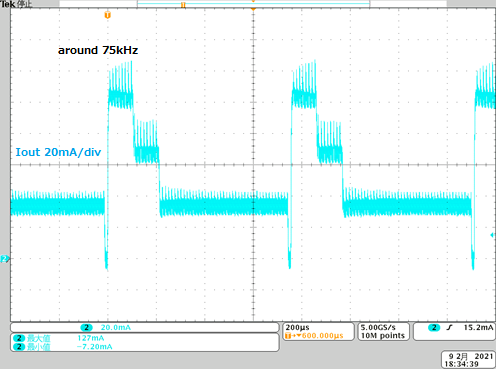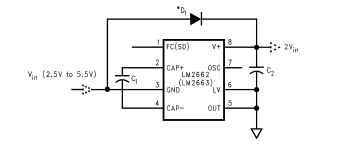HI expert,
My customer have an issue about output current noise with LM2663.
Configuration : Positive doubler
output current waveform
Diode(D1) : Customer try to change Diode from SS355VMTE-17(Vf=1.2V) to RB520SM-30 (Vf=0.58V) Because, the datasheet is recommended low Vf diode.
Then this noise is little bit improved. Could you please let me know the reason for it?
Also, Could you please let me know your recommendation for diode Vf (max)?
Noise frequency : around 75kHz
I think, It is switching frequency, right?
Datasheet is described Fsw = 27.5kHz(min), 75kHz(Typ). Could you please let me know the maximum value?
Also, what parameters does this variation depend on? (Temp/ Vin/ unit variation/ something like that)
Do you have any idea for the avoiding current noise?
Thanks
Muk



